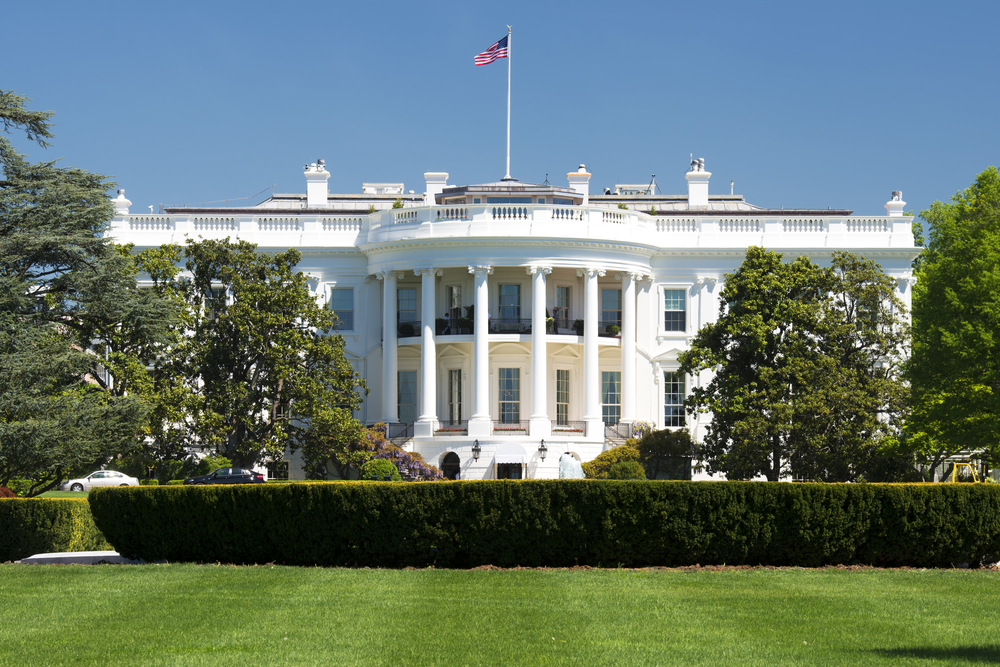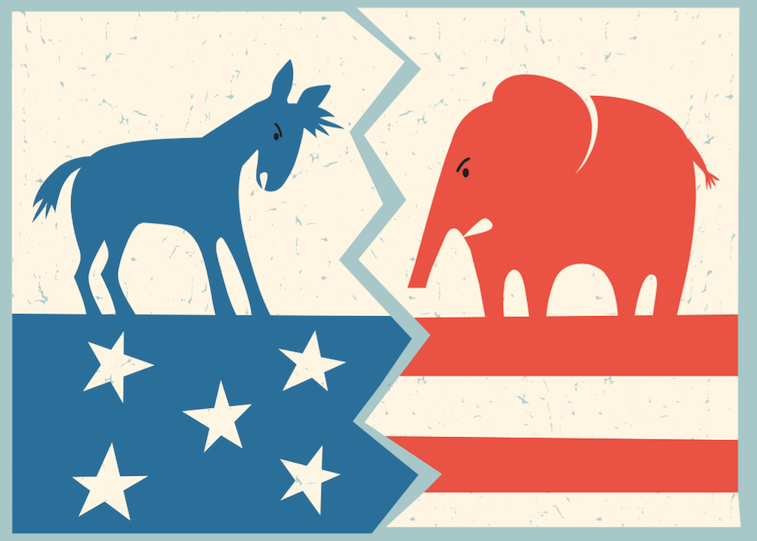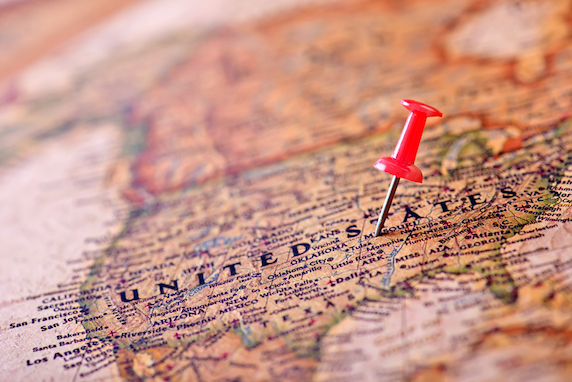The Wise Way to Send Money to Africa
Do you need to send money to Africa? Meet Wise, the smart new way to make international payments. Sending money internationally through a bank or broker like...

###Adapting to a new country is no easy thing.
You’ve got to find a new home, learn a new culture, even find a new bank and avoid getting stung by expensive exchange rates when you send money to the UK (of course, Wise customers already know how to beat the bank and save money when they send their money back home).
To make settling in harder, however, the politics of a new country can often seem like a total mystery - especially in the U.S. during election season.
So here’s a quick guide to five of the key things you should know about American politics as an expat to steer you through the confusion - and five of the strangest quirks its political system has to offer.
####1. President vs PM / stalemate vs checkmate

In the U.S. the elected Head of State and Head of Government, the President, is in charge of executing and enforcing the laws passed by Congress.
He depends on his supporters in Congress to pass policy into law, which can lead to stalemate if there’s an opposition majority.
The British Prime Minister and her chosen cabinet members lead a parliamentary majority, so they have a relatively smooth time pushing policy through (seriously, compared to the U.S., it’s plain sailing).
####2. ‘Commander-in-Chief’

You’ll hear the role Commander-in-Chief being bandied about a lot too during these elections. That’s because the President is also in supreme charge of military activity during war.
Although war can only be declared through Congressional approval, the President shapes much of the country’s military and foreign policy.
In the UK, this title is held by the Queen, although it’s of course largely symbolic.
####3. Congress, Senate, House of Representatives

Congress is the U.S.’ law-marking body. It’s made up of two separate houses - the House of Representatives and the Senate.
The House of Representatives consists of 435 members allocated to states in proportion to their populations (the higher the state population, the more members). Members are elected every two years. The Senate, also know as the Upper House, has 100 members (two per state) who are elected every six years.
Congress is part of the U.S.’ system of ‘checks and balances’ - which prevents too much power building up in any one branch of government.
However, it’s not quite the same as the two chambers in the UK, where the House of Lords is unelected and much less able to influence law-making than the Upper House in the U.S.
####4. Democrats vs Republicans = Donkeys vs Elephants

The U.S. is essentially a two-party democracy, with third parties only attracting a small minority of voters. Today, Republicans are typically socially conservative and believe in lower taxes and occupy much of rural America; Democrats tend to favour higher taxes on corporations and high-earners are are clustered in urban and coastal regions.
Also, if you’ve heard anyone talking about donkeys or elephants during the debate, don’t worry, they haven’t gone mad. These are the logos for the Democrats and Republicans, the legacy of mischievous 19th century cartoonists.
Despite the many differences, if you were to draw comparisons with UK politics, Republicans are typically more aligned with Conservative economic policy, Democrats with Labour’s more left-of-centre stance.
####5. What is the Electoral College?

Here’s the really confusing bit: the U.S. President isn’t actually chosen directly by ordinary voters. The 538 people (or electors) that make up the Electoral College are the ones who select him/her. When voters go to the polls, they're voting for their electors.
States are allocated electors based on the population of the state (from 55 in California to only three in D.C.). Even in tightly contested states, the winning Presidential candidate takes all the electoral votes (apart from Maine and Nebraska, where it’s divided according to district voting results).
The winning Presidential candidate needs over 270 electoral college votes. It’s similar to the UK’s first-past-the-post voting, but while several British parties have a shot at winning seats, states in the U.S. almost always declare Republican or Democrat.
The last third-party candidate to win electoral college votes was George Wallace in 1968 (Wallace was a segregationist famous for trying to stop black students enrolling at the University of Alabama).
You’ve got some of the terminology under your belt. Now here are 5 facts about American politics to impress your American friends:
####1. From cheerleading to UFOs, Presidents are an eccentric lot

Past presidential quirks include:
However, the prize for peculiarity goes to former President Jimmy Carter, who claims that he saw a UFO in 1973. He pledged to make public all information held in Government on UFOs if he was elected. Disappointingly he never made good on that promise, citing national security concerns.
####2. Obama’s the 44th president...out of 43

Grover Cleveland was elected twice in non-consecutive terms, so he’s counted as the 22nd and 24th president.
####3. In seven states, atheists can’t run for public office… even though they can

The constitutions of seven ‘Bible Belt’ states prohibit atheists from running for or holding public office: Arkansas, Maryland, Mississippi, North and South Carolina, Tennessee and Texas.
However, the U.S. Constitution bans any tests on religious beliefs, so the laws are unenforceable.
####4. The U.S. Constitution is the shortest in the world

Despite being one of the most revered documents in the history of democracy, the U.S. Constitution is a surprisingly punchy read.
At only 4,400 words (7,591 including signatures and amendments) it’s both the shortest and oldest constitution of any major world government.
####5. The voting system can throw up real curveballs

One of the biggest curveballs in electoral history happened in 2000 when Al Gore won the popular vote nationally but lost the election.
George W. Bush sneaked Florida by the tiniest margin - only 537 votes - winning him all 27 electoral votes from the state to tip him over the magic 270 mark.
Moving money between the UK and the U.S.? Don't get stung with a bad exchange rate.
Wise charges just 1% and never uses a mark-up on the exchange rate (unlike a bank or broker) - so you'll receive far more euros/dollars than you would if you used your bank.
Here's how it works:
*Please see terms of use and product availability for your region or visit Wise fees and pricing for the most up to date pricing and fee information.
This publication is provided for general information purposes and does not constitute legal, tax or other professional advice from Wise Payments Limited or its subsidiaries and its affiliates, and it is not intended as a substitute for obtaining advice from a financial advisor or any other professional.
We make no representations, warranties or guarantees, whether expressed or implied, that the content in the publication is accurate, complete or up to date.

Do you need to send money to Africa? Meet Wise, the smart new way to make international payments. Sending money internationally through a bank or broker like...

Planning a trip? Moving country? Don’t get stung by nasty fees and even nastier rates. Banks, brokers and PayPal are more expensive than they look....

Türkiye'ye hâlâ banka ya da komisyoncu aracılığıyla mı para gönderiyorsunuz? Şimdi para göndermenin daha akıllı ve ucuz bir yolu var. Eğer Türkiye'ye para...

ถ้าคุณยังโอนเงินกลับไทยด้วยวิธีเดิมๆ ผ่านธนาคารหรือโบรคเกอร์ เราอยากบอกว่า มันมีวิธีที่ถูกและดีกว่าให้คุณได้ลองนะ Wise จะช่วยให้การโอนเงินกลับไทยถูกลง...

คุณยังคงใช้ธนาคารหรือนายหน้า ในการส่งเงินไปยังประเทศไทยอยู่รึเปล่า? Wise เป็นอีกหนึ่งตัวเลือก ที่จะช่วยให้คุณส่งเงินปอนด์...

If you’re a small business in the US that operates overseas, Wise could save you a lot of time and money when you pay invoices in foreign currencies,...